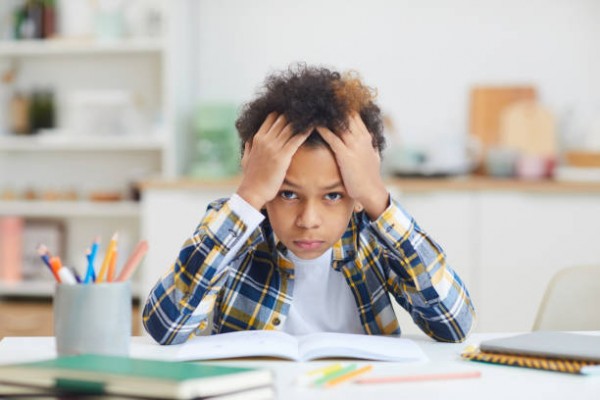
There is no secret. Our children are experiencing anxiety and depression in record numbers, and parents are struggling to find solutions. Recently, a local private school asked me to give a presentation on this topic. Although I was certainly aware that mental health issues in children and teens were pervasive, the statistics I uncovered in my research while preparing for the presentation are alarming:
- 3.2% of children aged 3-17 years (approximately 1.9 million) have diagnosed depression
- from 2007-2017, 12-17 year-olds who had experienced a major depressive episode increased from 8%-13%, an increase of 1.2 million children
- a 2018 study reported a 17% increase in anxiety disorder diagnoses among young people over the previous 5 years
- more than 10% of children ages 6-17 have a current anxiety disorder
- 48% of college students cite anxiety as the top reason they are seeking counseling
- From 2007-2017, suicides among 10 to 24-year-olds rose 56% to become the 2nd leading cause of death.
- ER visits for suicide attempts or suicidal ideation in young people rose from 550,000in 2007 to 1.1 million in 2017 with 43% being under the age of 11
I have devoted an enormous amount time researching and studying these numbers in order make sense of them and to try to understand what could be causing this dramatic increase in depression and anxiety in our children during such a relatively short period of time. Some of the more common reasons given tend to blame our modern lifestyle; social media, smart phones, busy-ness, reduced sense of community, heightened expectations around school performance, etc. Undoubtedly, each of these factors do contribute to children’s increased levels of anxiety and depression. But, very interesting findings out of Yale University’s Child Study Center called SPACE (Supportive Parenting for Anxious Childhood Emotions) point in a slightly different direction.
It looks like it could be us; the parents! Before you panic or become uncomfortable with the idea that we parents are contributing to this crisis, this is actually great news. If our children’s escalating stress, anxiety and depression have something to do with our own behavior as parents, that means we can change it. We have the ability to make things better. My own experience working with families in my parent coaching practice tells me this is so. I have witnessed this transformation over and over again.
So, how are we fumbling the ball, and more importantly, how do we fix it? Modern American parents, it seems, just can’t seem to tolerate their children’s discomfort. We can’t handle their failures, sadness, anger, and loss, and we show up in big ways to fix it. We either act like their disappointments or frustrations are no big deal, even when our children are letting us know that, to them, they are, or we go to extremes to make everything alright. We drop off the missing assignment, forgotten instrument, or left-behind lunch. We call the teacher or pull the coach aside in an effort to plead our child’s case. We hire private coaches, personal trainers, and tutors in our efforts to make sure our child’s life turns out “perfectly.” When our children come to us and tell us that their teacher is unfair, or a class is too hard, or a friend doesn’t like them anymore, we often respond by negating their feelings, (“That’s not true” “It’s not that bad”) then we complain that our children don’t talk to us.
And, we pressure, oh boy, do we pressure. We have a preconceived notion of what success looks like, and we stress about it from day one to keep our children fitting into the “success box” that we have created. We freak out if our kids aren’t in the “right” class getting the best grades, or don’t have enough friends, or the “right” friends, or they don’t play the “right” sport on the “right” team, or, god-forbid, they don’t like sports at all (gasp!). Our stress over making sure everything goes perfectly has really stressed our kids out. When the message is “you need to be a certain way in order for me to be okay”, it can be quite soul-crushing. No child wants to disappoint their parent, but, by not being true to who they are and not being accepted for who they are, they end up feeling anxious and depressed.
Everyone wants to be the captain of their own ship, to be truly seen and understood, and to be accepted and loved for exactly who they are. We need to begin to understand that we were never meant to be the carpenter of our children’s lives, we are meant to be the gardener, supporting, nurturing, and accepting. It’s not for us to create the life we think they should have. Instead of rushing in to solve every problem, let them know you understand how they feel then ask them how they think they can solve their problem. Instead of trying to smooth over every hurt, show them that you can handle it and just be there for them. Not freaking out or fixing, just listening and empathizing.
If parents could begin to make some of these changes, I believe we could reverse this runaway train of anxiety and depression in our children. We can’t be afraid or intolerant of our children’s suffering or failures, that is how they will learn the lessons they need to, and, to begin to understand that they are competent to handle what life will inevitably throw their way. Allowing them to go through it, and being there to support and understand, but not fix is the most important gift you can give them.
References and Resources:
https://www.cdc.gov/childrensmentalhealth/data.html
https://www.theatlantic.com/magazine/archive/2020/05/childhood-in-an-anxious-age/609079/
This post comes from the TODAY Parenting Team community, where all members are welcome to post and discuss parenting solutions. Learn more and join us! Because we're all in this together.
